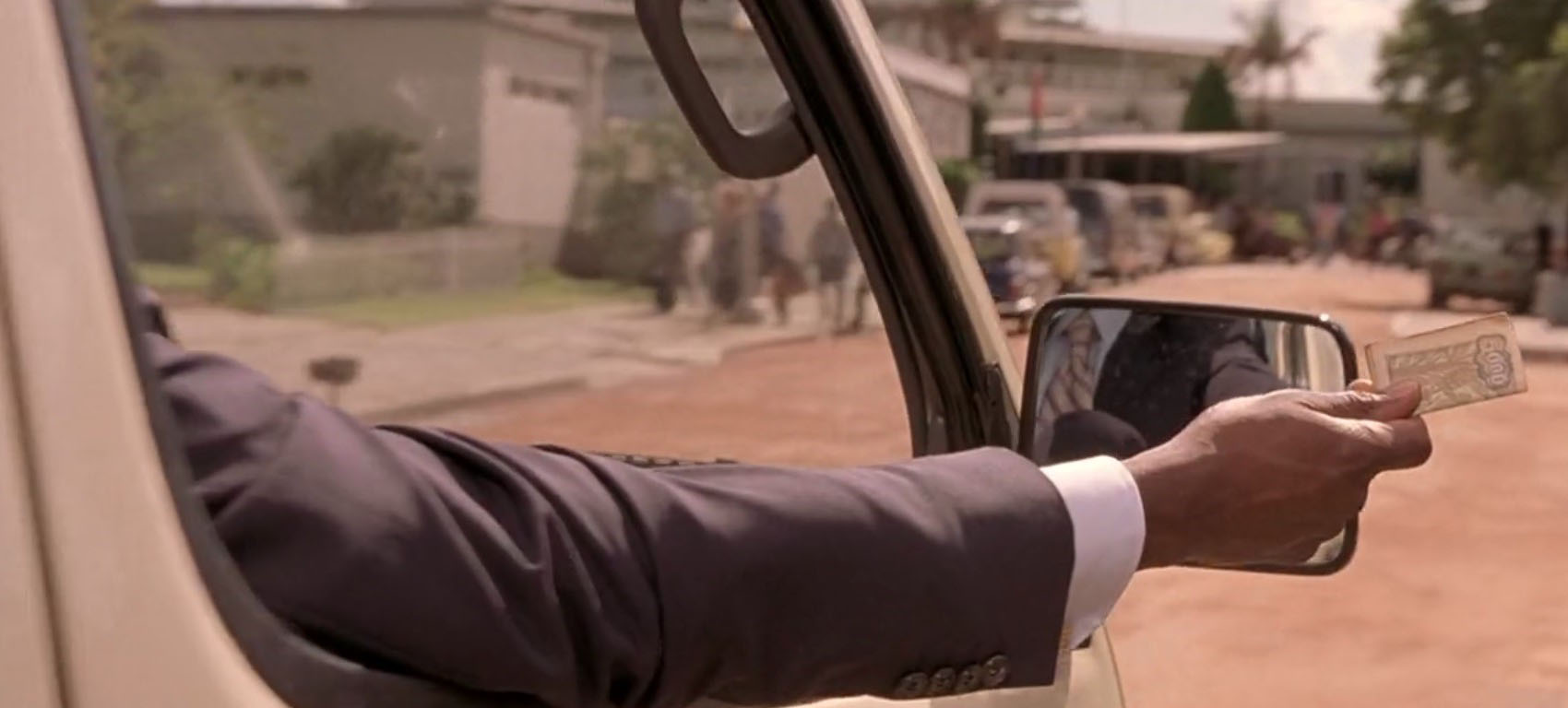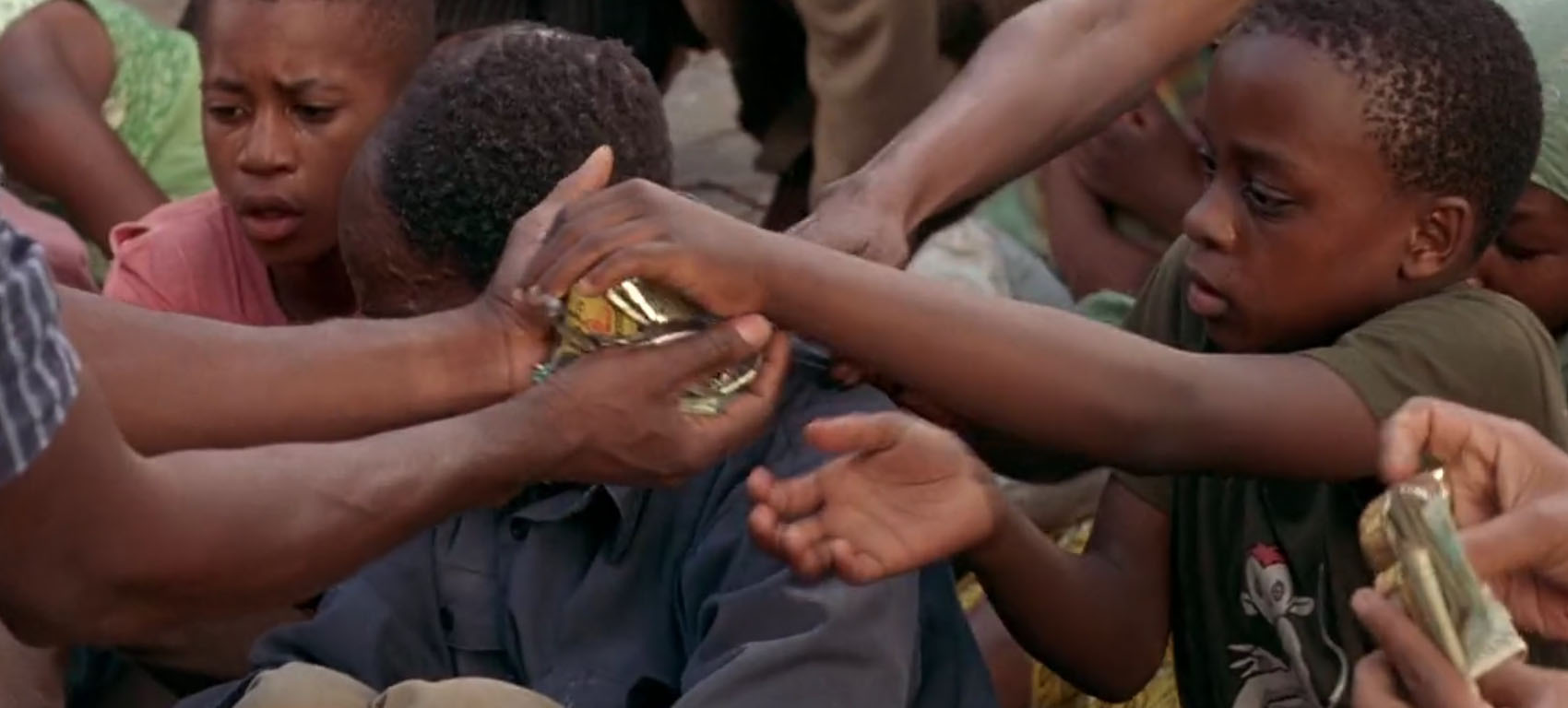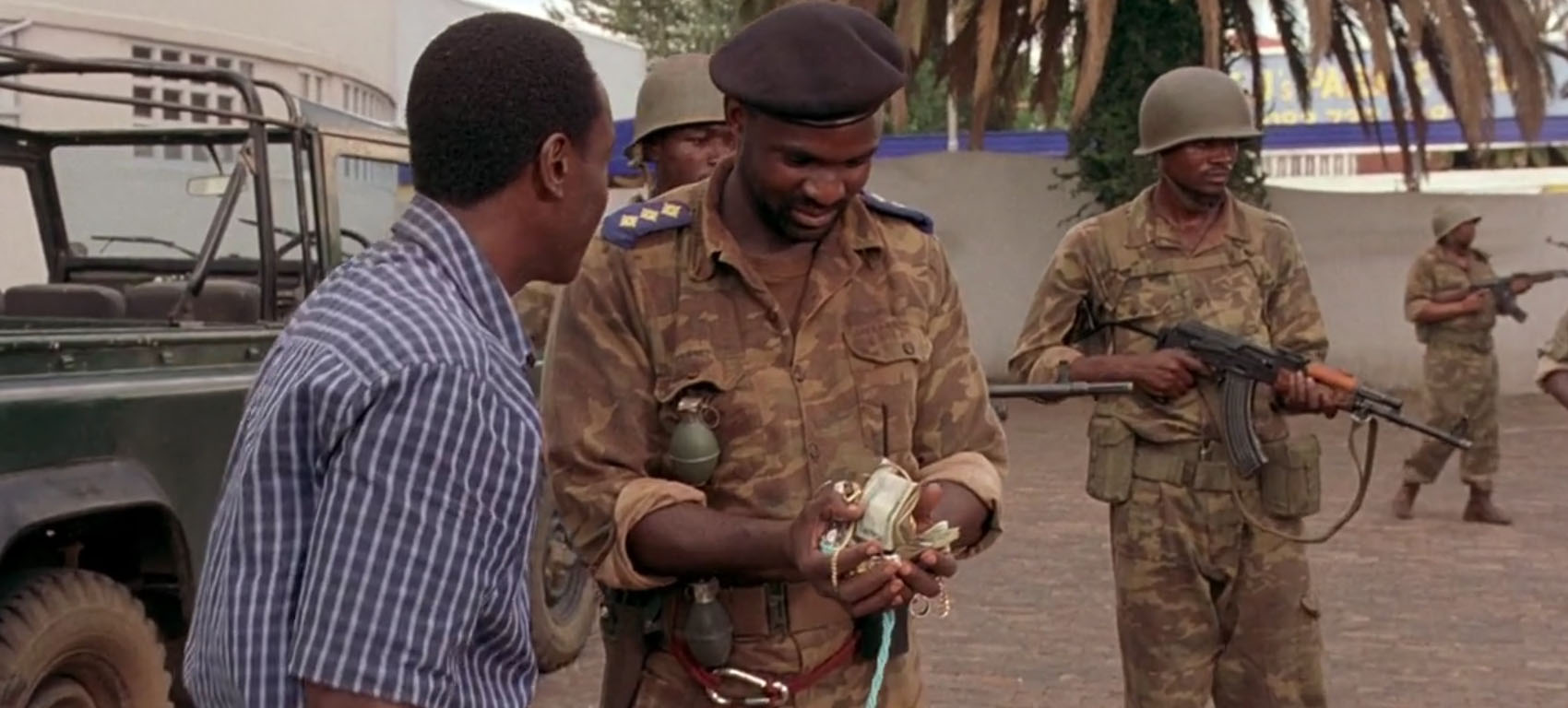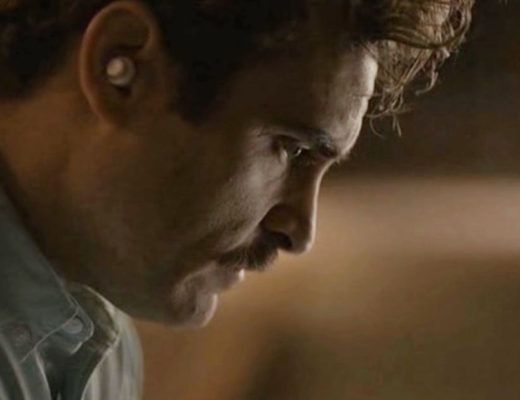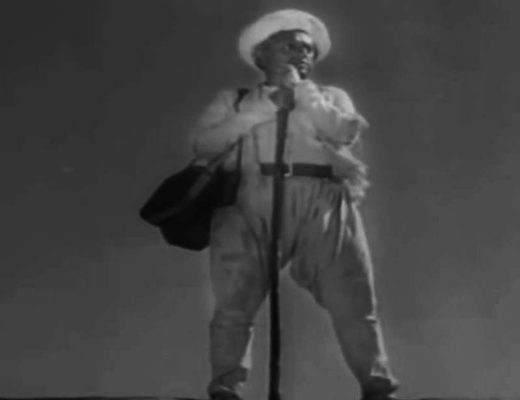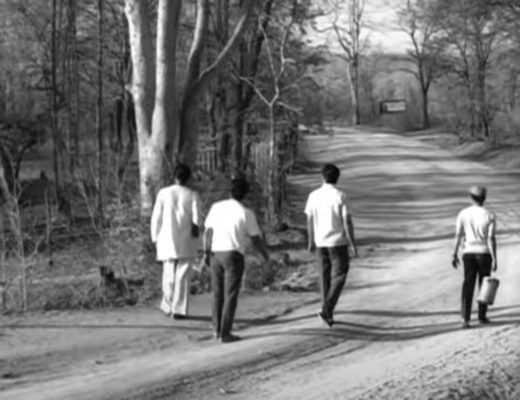
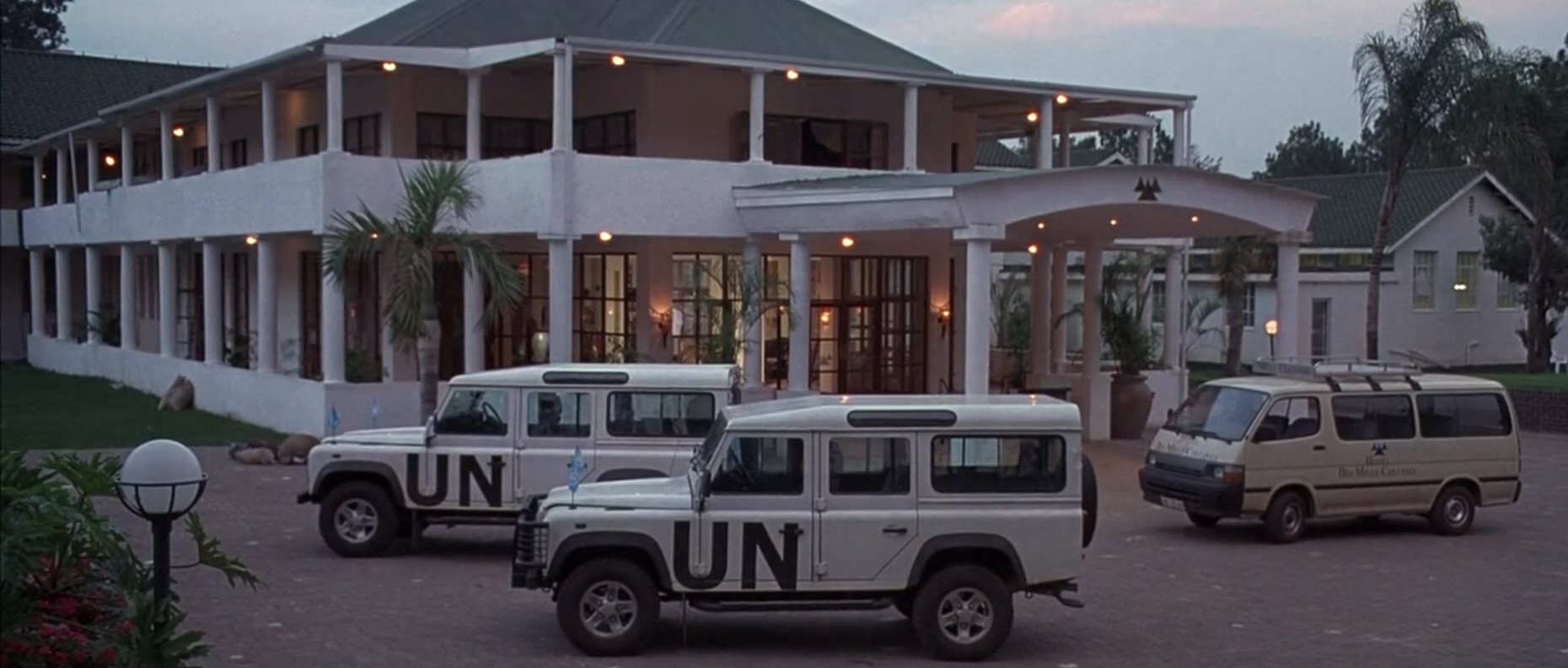
‘Hotel Rwanda’ is about a Belgian hotel called Des Milles Collines in the capital city Kigali of Rwanda whose western reputation acts as ‘The Oasis in the Desert’ and saves the lives of 1200 Tutsi and Hutu refugees coupled with the presence of mind of our lead Character Paul Rusesabagina played by Don Cheadle
When the town of Kigali is at unrest, the houses are being burnt and the genocide is taking a strong shape, the inside of the hotel seems to be still at peace.
The slow romantic piano, both used live and as background score inside the hotel (as long as the western guests are staying) symbolizes the luxury of the west in a classy 4 star environment. Western guests are relaxing beside the pool, people are chatting, drinking and enjoying while outside the sounds of gunshots increase with time. The contrast is subtle and strong.
One local tribe is slaughtering the other. The target of the Hutu tribe (led by Interahamwe paramilitary force) is to wipe out the total existence of the Tutsi tribe generations. Their primary targets are children.
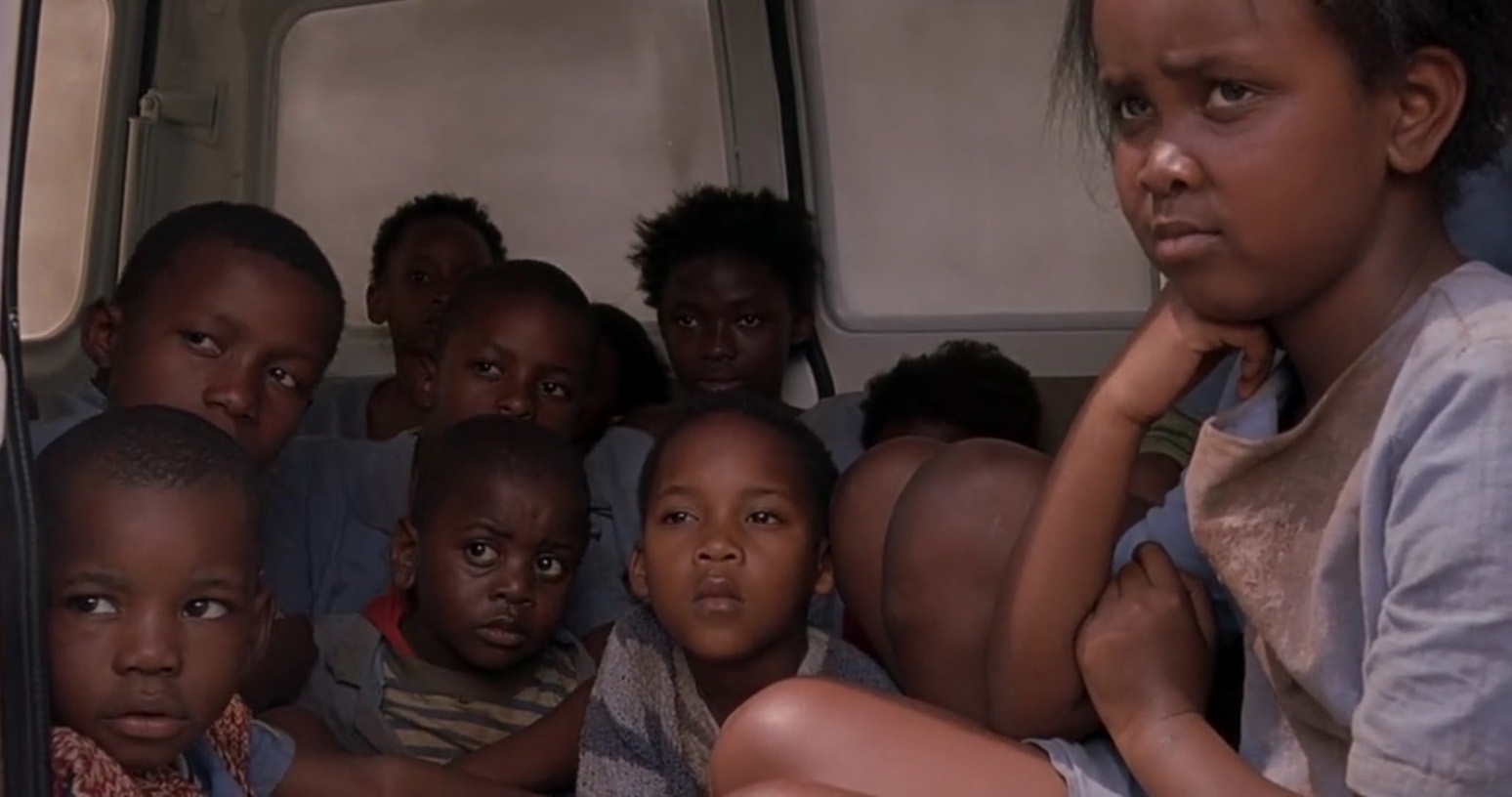
A conversation between a western a Tutsi journalists (played by Joaquin Phoenix and Mothusi Magano respectively)
– “What is the actual difference between the Hutu and a Tutsi?”
– “According to the Belgian colonists, the Tutsi’s are taller and more elegant. It was the Belgians that created the division”
– “How?”
– “They picked people, those with thinner noses, lighter skin. They used to measure the width of peoples’ noses. The Belgians used the Tutsis to run the country, when they left, they left the power to the Hutus and of course the Hutus took revenge on the elite Tutsis for years of oppression”
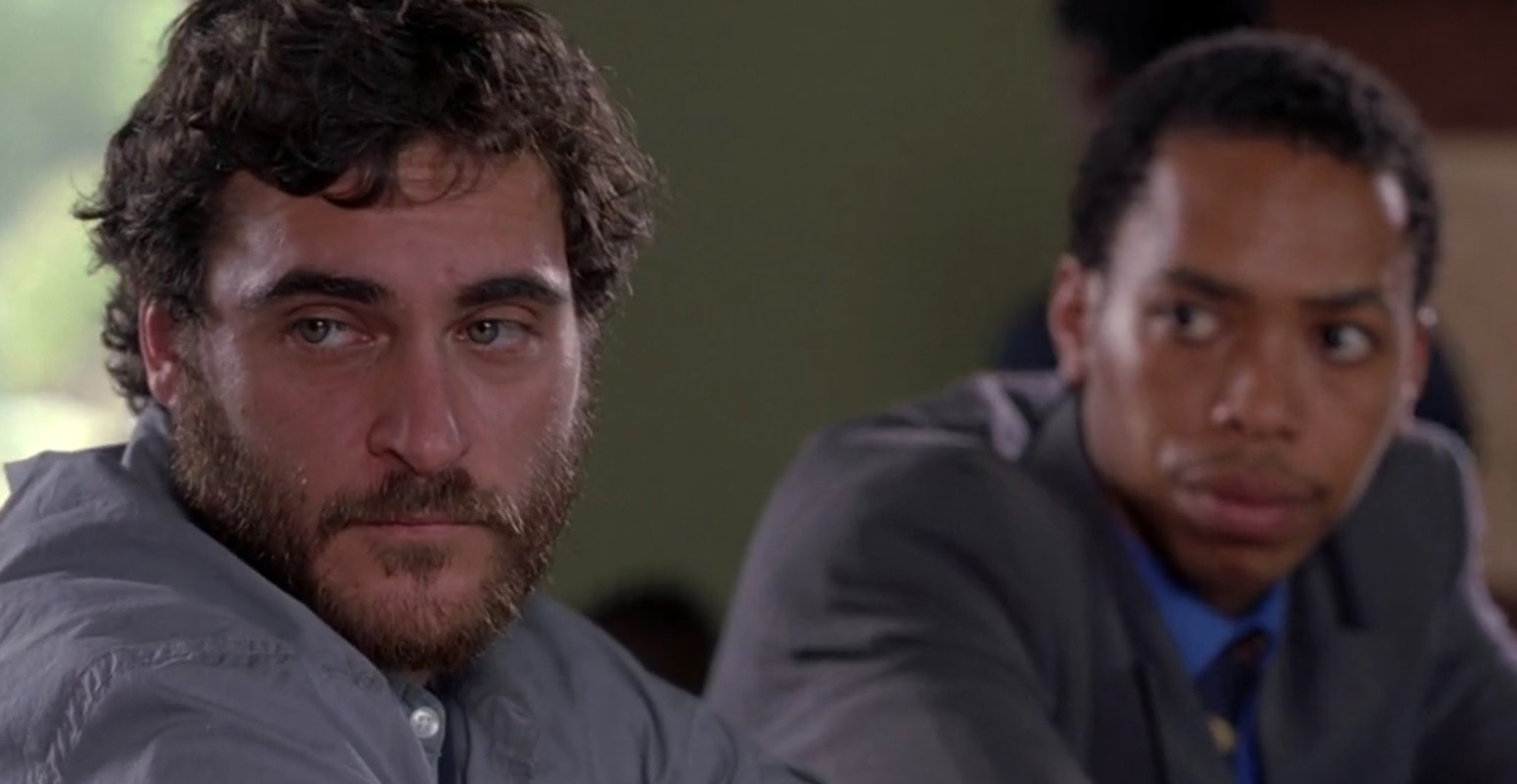
The history of the 1994 Rwanda is brutal for the natives (like any other colonized country) and the film shows that in the most engaging way possible. It hooks the audience instantly right from the first frame and the tension picks up within 10 minutes from the start of the film. We do not see the acts of explicit blood shed but the tension is always there the way it unfolds. We witness the genocide from the experience of our lead character Paul.





Paul, himself a Hutu and married to a Tutsi, considers the division between the Hutus and the Tutsis as ‘stupid’ and unfortunate. It is shown right from the beginning of the film that he has a professional relationship with the Interahamwe leader George Rutaganda played by Hakeem Kae-Kazim (for supplies of alcohol and food for the hotel) and with the army General Bizimungu played by Fana Mokoena (who enjoys the scotches received as bribe from Paul).
Later in the film Paul uses his contacts, presence of mind and years of experience of bribing to save the lives of his family members, his neighbors and other Hutu and Tutsi refugees by giving them shelter in the Hôtel Des Milles Collines.
A well-structured film has to come from a well-structured screenplay. Keir Pearson and Terry George have written this film as a journey through confrontations and resolutions and narrowly escaping deaths many times. The order of events makes us yearn for what happens next. The narrative gives a strong indication of the negative impact of colonization in Rwanda and how the west takes it as a ‘horrible’ event happening somewhere far in the world and refuses to intervene to bring peace.
Robert Fraisse has equally done justice with the cinematography and lighting. The music and sound are amazingly done by Afro Celt Sound System, Rupert Gregson-Williams, Andrea Guerra. Terry George’s direction has extracted the magic out of all the actors and has engaged us emotionally with Paul’s cinematic journey.





